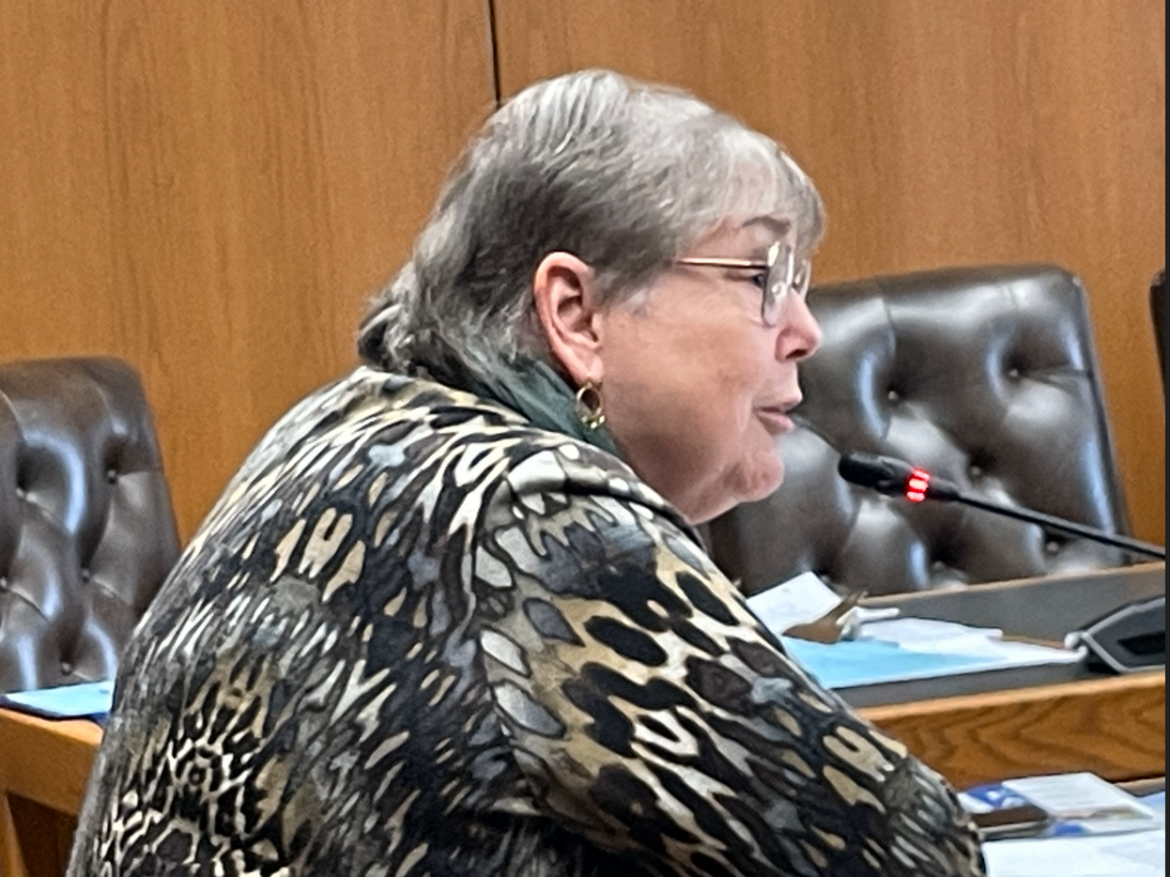By GARRY RAYNO, InDepthNH.org
CONCORD — If the Attorney General has probable cause to believe a legislator does not live in the district he or she represents, the attorney general would be obligated to inform legislative leaders of his or her chamber under a bill that had a public hearing Thursday.
Under House Bill 1629, the Attorney General would have to notify the presiding officer, the minority leader and the clerk of the chamber.
The prime sponsor, Rep. Lucy Weber, D-Walpole, told the House Legislative Administration Committee Thursday, it is the purview of the Attorney General to investigate criminal matters, but only the Legislature may address the qualification of its members.
“When the Attorney General has probable cause to believe a member is living outside the district, he has to give notice to the Speaker and the Minority Leader and the clerk,” Weber said. “The purpose is so those legislative leaders can then make a determination on the members of their body in concordance with the rules of their body.”
That is not something the Attorney General can weigh in on, she said.
The genesis of HB 1629 is the case of Republican Rep. Troy Merner who was allowed to serve and vote last session, although he did not live in the district he represented.
Under the bill, the Attorney General would not have to provide any details of any criminal investigation beyond residency.
Weber said any information about the investigation beyond residency is not the legislature’s business.
She said the bill clarifies how the two branches of government should communicate on the question of residency, and that the legislature should have the information it needs to do its own job.
Committee member Rep. Allison Nutting-Wong, D-Nashua, asked what happens after the communication.
Weber said that would be up to the leadership of the House or Senate and the members of those two bodies.
Over the years when the issue has arisen, it has been handled differently depending on the situation, she noted.
In one instance, the Legislative Administration Committee conducted an investigation and in another the Ballot Law Commission had to decide because it concerned appearing on the ballot, Weber said.
It would be difficult to have just one procedure, she noted.
Several years ago a member’s house burned, and he lived in an apartment until it was rebuilt, Weber said, and he did not lose his residency nor do lawmakers who live at their summer house.
The New Hampshire Constitution requires a member to live in the district he or she represents. If a legislator moves out of his or her district, he or she is expected to resign.
Merner moved out of Lancaster, the town he represented and where he was a selectman, in August 2022, according to an investigation by the Attorney General’s Office.
Merner voted in Lancaster in the 2022 general election although he was living in Carroll and on the ballot to represent Lancaster, Dalton, Northumberland and Stratford.
The Attorney General’s Office was alerted to Merner living outside his district in the fall of 2022.
An initial investigation by the Attorney General’s Office resulted in an email informing House Leadership of a credible report that Merner did not live in his district the day before representatives were to be sworn into office for the term. No action was taken and Merner was sworn in with the other 399 members of the House.
Merner, 63, told people House leadership asked him to stay on after his move from Lancaster to Carroll because Republicans needed his vote in the closely divided House between Republicans and Democrats, but he hasn’t publicly identified who told him that.
House Speaker Sherman Packard, R-Londonderry, said Merner was asked where he lived and provided information that he continued to live in Lancaster.
The investigation did not move forward until a Lancaster election official filed a complaint with the Attorney General’s Office in March of 2023 and the investigation continued and concluded Merner had not lived in his district since August of 2022.
Merner resigned, but he served the entire 2023 session voting on a number of bills where one vote determined the House’s action including some key pieces of legislation that session.
Merner was arrested in late November and the investigation then shifted from the Elections Law Unit to the Public Integrity Unit and is ongoing.
He waived arraignment that had been scheduled for Dec. 28 and will appear in court for a dispositional hearing March 14.
He has been charged with one class B felony count of wrongful voting, and misdemeanor charges of theft by deception, unsworn falsification and tampering with public records for allegedly filing false mileage charges to and from the State House.
Merner’s arrest affidavit can be read here: https://indepthnh.org/wp-content/uploads/2023/11/merner-affidavit-signed.pdf
Packard and Deputy House Speaker Steve Smith, R-Charlestown, told reporters last month in an invitation-only press conference InDepthNH.org was not invited to, that they had done nothing wrong and wanted to put the issue to rest.
Weber was the only person to testify on HB1629.
The committee did not make an immediate recommendation on the bill.
Garry Rayno may be reached at garry.rayno@yahoo.com. He has been a reporter for 40 years in New Hampshire.





